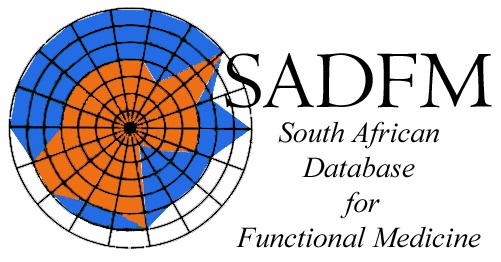Tools

The Alpha Scale
The Alpha measures the person’s ability to maintain the functioning of their bodily organs and systems.
The Alpha’s parameters relate to the ICF’s basic list of body functions and structures. There are 12 constructs to support measurement of bodily organs and systems. Each construct has 7 intervals.
The Alpha’s value is appreciated by case managers as a point of reference when triaging patients along the continuum of care; e.g. acute-, sub-acute- and non-acute settings.
The user difficulty level for scoring a person on the Alpha tool is at the level of a professional registered nurse.
The training and accreditation time for the use of the Alpha scale is 6 hours.
The Alpha Tool’s reliability was established by calculating the Cronbach Alpha coefficient. For generally sick persons the Alpha scales is internally highly consistent (Cronbach Alpha = 0,96). As the seriousness of the illness increases the Tool’s internal consistency goes to as high as 0,99.
The Beta Scale
The Beta measures the person’s ability to self-care in their immediate environment.
The Beta parameters relates to the ICF’s basic list of activities and participation.
There are 18 constructs to support measurement of self-care and each construct has 7 intervals.
The Beta is used in the sub-acute and non-acute care setting and quantifies the nursing resources required for the person to maintain his self-care. The total Beta score reflects the ability of the person to maintain their self-care and the amount of help that the person requires. Regular daily scoring reflects the functional gains or losses of a person’s self-care abilities overtime.
The user difficulty level for scoring a person on the Beta Tool is at carer level.
The training and accreditation time for the use of the Beta scale is 8 hours.
The Beta’s nursing utility was examined and provided excellent results. The construct validity was also analysed with Rash analyses and the outcome was reported to be good to very good Loubser 2012; Loubser 2013).
The Delta Scale
The Delta measures the ability of a person to interact with the world in a meaningful and appropriate way. Often a subject’s basic motor and cognitive functions are intact but the person lacks meaning and understanding which may lead to inappropriate behaviour and dependence on others. Such a person may be lacking in their executive functioning.
The Delta relates to the ICF’s domains of mental body functions.
There are 5 constructs and each construct has 7 intervals.
The Delta is used in the sub-acute, non-acute and custodial care settings for all persons having executive functional deficits. The total score on this Tool reflects the acuteness of the person’s mental health condition and the amount of professional care resources required. Regular daily scoring reflects the progression or regression of the functionality of a person’s executive functioning.
The user difficulty level for scoring a person on the Delta is at a professional registered psychiatric health nurse level.
The training and accreditation time for the use of the Delta tool is 8 hours.
The Delta’s nursing utility was examined and provided excellent results. The construct validity was also analysed with Rash analyses and the outcome was reported to be excellent (Loubser 2012; Loubser 2014).
The Gamma Tool
The Gamma Tool measures the person’s ability to life independently within their immediate environment.
The Gamma Tool relates to the ICF’s domains of activity and participation within in the person’s current contextual factors.
There are 8 constructs, each with 7 intervals, which allow for measurement of independent living.
The Gamma is mostly used in the non-acute care setting and measures the person’s need for assisted living. The total Gamma score reflects the ability of the person to maintain an independent living lifestyle, and if help is needed, the care resource needed. Regular scoring reflects the progression or regression of the ability of a person to live an independent lifestyle.
The user difficulty level for scoring a person on the Gamma tool is at the level of a care-giver.
The training and accreditation time for the use of the Gamma scale is 6 hours.
The Gamma’s nursing utility was examined and provided very good results. The construct validity was also analysed with Rash analyses and the outcome was reported to be very good (Loubser 2012; Loubser 2013).
The Omega Scale
The Omega Tool measures the ability of a dying person to maintain their dignity while receiving palliative care.
There are 8 constructs to support measurement of dignity and 7 intervals on each construct.
The Omega is used across all care settings for all dying persons receiving palliative care. The total Omega score reflects the level of dignity the dying person can maintain and the amount of counselling resources required. Regular scoring reflects the progression or regression of the person’s dignity.
According to the user difficulty level, scoring a person on the Omega Tool can be done by any person with counselling skills and empathy towards the dying process.
The training and accreditation time for the use of the Omega Tool is 8 hours.
On the Cronbach Alpha the Omega revealed a high level of internal consistency, showing an alpha value of .915. As can be expected the scale consists of 1 component, attracting high loadings from each of the eight constituent items.
The Epsilon Scale
The Epsilon scale measures the person’s ability to perform the job currently occupied.
The Epsilon measures the subjects compliance within a given prescribed or existing job situation through direct observation of the subject in the job situation.
The difficulty level for observing and assessing a subject in a given job situation is that of an occupational therapist with vocational rehabilitation knowledge and skills.
The Epsilon has 7 sub-items or constructs that support the domain, namely:
Prevocational skills sub-items or constructs.
Vocational skills sub-items or constructs.
It is important to understand that the Epsilon scale does not measure:
- the level of ability of the subject to acquire a job,
- the job market opportunities available to the subject, or
- the impairments or symptoms of the illness that results in poor job performance.
However, a skilled occupational therapist may use the Epsilon score in certain situations to render an opinion to the above items through simulation techniques.
The Zeta Scale
The Zeta scale measures the ability of a person to perform their social functions appropriately when amongst people.
The Zeta is a global social work practice outcome rating scale mostly used by social workers to rate a client’s social functioning according to their behaviours observed by the social workers.
The difficulty level of the Zeta is at the level of a professional social worker.
The Zeta scale has 12 constructs and each has 7 intervals.
Training and accreditation of the Zeta takes 8 hours.
The Zeta is currently undergoing validation testing.
The Eta Scale
The Eta measures the patients’ ability to comply and adhere with clinical regimes to manage, maintain and prevent their health care status.
The ETA is used to measure the performance of the primary healthcare service to diagnose timeously, to inform and educate the patient correctly, to monitor patient outcome appropriately.
The difficulty level of the ETA is at professional nurse, therapist and general medical practitioner level.
The Eta has 8 constructs and each having 7 intervals.
Training and accreditation of the ETA takes 6 hours.
The Eta is currently undergoing validation testing.

